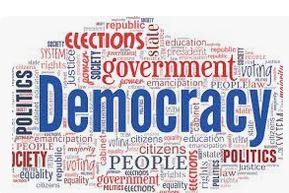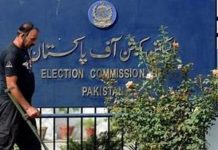In a development that has stirred deep concern across Pakistan’s political landscape, an anti-terrorism court in Faisalabad has sentenced 61 more Pakistan Tehreek-e-Insaf (PTI) leaders and workers to prison in connection with the May 9, 2023 riots. Among those convicted are prominent figures such as Omar Ayub, Shibli Faraz, and Zartaj Gul, each handed a 10-year sentence for their alleged involvement in the attack on the residence of Pakistan Muslim League-Nawaz (PML-N) leader Rana Sanaullah2.
The verdict marks yet another chapter in the ongoing legal crackdown against PTI following the unrest that erupted after the arrest of former Prime Minister Imran Khan. Thousands of party members have been arrested, tried, and sentenced in various cases tied to the May 9 protests, which saw widespread demonstrations and damage to public property. While the state maintains these actions were necessary to uphold law and order, critics argue that the judicial process has been weaponized against political dissent.
The sentencing of Ayub, Faraz, and Gul—who were not present in court during the verdict—has raised serious questions about due process and the fairness of the trials. Many of the accused have already been convicted in other cases and disqualified from parliamentary positions, leading to accusations that these legal actions are politically motivated. Zartaj Gul, for instance, has publicly denied the charges, claiming she was not present at the alleged planning meeting and had submitted evidence to support her claim.
This pattern of repeated convictions and disqualifications has sparked fears that the judiciary is being used to systematically dismantle PTI’s political influence. Such actions not only undermine democratic norms but also risk alienating the electorate and eroding public trust in the legal system.
The international community is watching closely. Pakistan’s image as a functioning democracy is at stake, and the implications extend beyond politics. Investors and tourists alike seek stability, transparency, and rule of law. If political activism continues to be criminalized, it sends a chilling message to the world: dissent is dangerous, and justice is selective.
This perception could deter foreign investment, stall tourism, and isolate Pakistan diplomatically. In an era where global partnerships hinge on democratic values and human rights, the country cannot afford to project an image of authoritarianism cloaked in legal formalities.
While some political factions may celebrate the downfall of PTI leaders, such triumphalism is shortsighted. Today’s victors could be tomorrow’s defendants. The precedent being set—where political rivalry is settled in courtrooms rather than through dialogue and elections—poses a threat to all parties. If the legal system becomes a tool of political vengeance, no one is safe.
August 26, 2025, will be remembered not just for the convictions, but for what they represent: a shrinking space for political expression, a judiciary under scrutiny, and a democracy in distress. Pakistan must reflect deeply on the path it is taking. True justice must be impartial, and democracy must be resilient enough to accommodate dissent—not punish it.
The road ahead demands introspection, reform, and a recommitment to democratic principles. Otherwise, the cost will be borne not just by PTI, but by the nation as a whole.

















